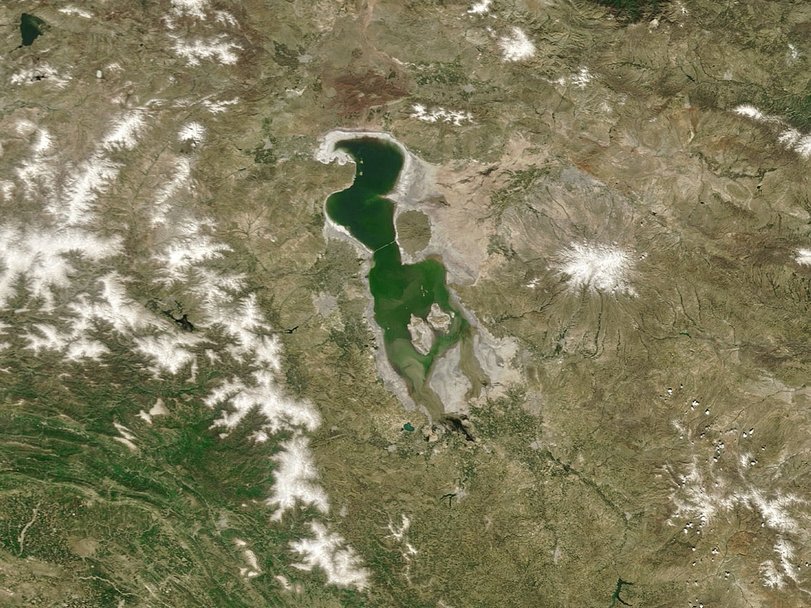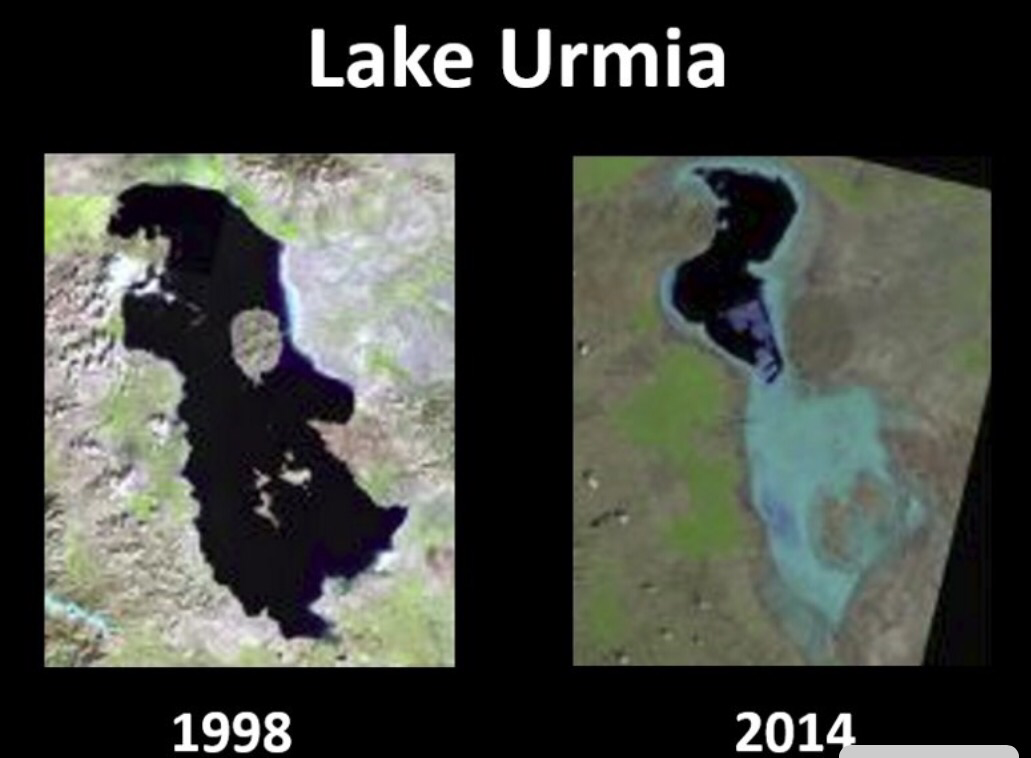Environment
Lake Urmia – Reverse Engineering to Mitigate Salination of Land-Water Systems
|
Salination of land-water systems is an existing and accelerating threat especially in the arid and semi-arid MENA regions.
The primary sources of such threats are increasing population growth, enhanced competition on water resources, random and uncoordinated management policies of coupled water-energy resources. Furthermore, the increasing impacts of climate changes on the functioning of land-water systems are likely to cause major large-scale and long-term disasters. A similar disaster to the Aral Sea, the so-called Aral Sea disaster , took place in Lake Urmia in Iran where the whole lake, once the second largest saltwater lake in the world, dried out. The lake dried out because of decades of man-made disruption, 60 years of dam building and massive overuse of the feeder rivers. This has diverted the natural flow of fresh water from the surrounding basin into the salty lake and caused major large-scale and long-term disasters in the catchment and regions around Lake Urmia. © NASA Earth Observatory image of Lake Urmia on April 23rd 2016 by Joshua Stevens, using Moderate Resolution Imaging Spectroradiometer (MODIS) data from the Land Atmosphere Near real-time Capability for EOS (LANCE) and Landsat data from the U.S. Geological Survey. The dead salt bed is what the exposed bottom of the lake had become after the water had gone. With the force of the wind the salt granules are blown into the face and the lungs of anyone near the lake, and onto the surrounding farmlands.
Living day-in and day-out in such environments the residents and farmers are constantly exposed to poor quality of air and loss of crops from salted soil. As farmers drilled wells deeper into the aquifers at the side of the lake, the groundwater would become depleted, allowing saltwater to seep in. The situation gradually became similar to that of the Aral Sea in Central Asia with people afflicted with allergies, respiratory defects, lung cancer, failing crops and severe degradation of land and water qualities. Years of efforts to bring water back to Lake Urmia have eventually succeeded : there is water now. Not nearly enough, but much more than before. It is a resurrection in the Middle East: Life has returned to a dying salt lake, Lake Urmia, in northwest Iran. This revival is the result of an immensely successful collaborative effort involving many players, some Iranian, some foreign. The project to improve water management is being implemented by the United Nations, working closely with local farmers, provincial and national governments. As the situation is progressing towards the original normal conditions of a healthy environment, we have learned three lessons from this success story: (1) First, Iran faces great environmental challenges that reflect those faced by many countries in the MENA region. But mitigation can be carried out. (2) The public, including all stakeholders, must be educated and speak out on existing threats and the ongoing environmental degradation. The UN received a petition containing 1.7 million signatures in 2016, requesting action on Lake Urmia. The pressure has been relentless. Such pressure must continue, be welcomed and acted upon without delay. (3) Environmental problems cannot be solved if we act alone. The Lake Urmia response shows that collective effort by public authorities, local communities, and sometimes support from the international community, such as the UN and donor nations, was needed to enable the reversal of environmental degradation. Work remains to be done, but what has happened in Lake Urmia is an example to inspire us all, both inside and outside Iran. |
2017
Farid El-Daoushy |
|
References:
http://www.tehrantimes.com/news/411905/A-resurrection-in-the-Middle-East-Life-has-returned-to-a-dying Sustain-earth: http://sustain-earth.com/2017/03/lake-urmia-reverse-engineering-to-mitigate-salination-of-land-water-systems/ Article Rights
Farid El-Daoushy Senior Professor, Uppsala University, Uppsala, Sweden sustain-earth.com [email protected] |

